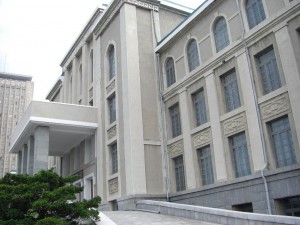
Following the departure of six North Korean professors from an exchange program at UBC this past December, Kyung-Ae Park, the professor in charge of the program, is optimistic another cohort will arrive in July.
The professors from the secluded country first began arriving at UBC in 2011 as part of the Knowledge Partnership Program, North Korea’s only academic exchange program in North America. Similar exchange programs have existed between North Korea and Mexico, Australia and Switzerland.
“I think [the program] has been quite successful and that’s why we’ve been able to continue the program for two years,” Park said in an interview.
But even given such success, the future of the program is not set in stone.
“There have been no roadblocks,” Park said, “but until it’s finalized, we do not know if it will continue or not.”
Park said she hopes to know whether or not the program will continue by March.
The program allows six North Korean professors to stay in student residences and take business and economics classes at the university. They also meet with business leaders in Vancouver and other Canadian cities to gain an understanding of the Canadian economy.
Given the sensitivity of working with the North Korean government, Park is often reluctant to speak with the media. Much information about the program, such as who funds it, is unavailable.
The Knowledge Partnership Program grew out of UBC’s longtime involvement with North Korea. UBC has more Korean specialists than any other Canadian university, according to professor Paul Evans, former director of the Institute for Asian Research at UBC, who has been involved in the program. Some of those specialists were involved in “Track 2” talks between Canada and North Korea in the 1990s, attempting to establish diplomatic relations between the two countries.
Some of the specialists who participated in those negotiations in the 1990s that didn’t already work for the university were later brought on board. One of those specialists was Joseph Caron, a former Canadian ambassador to North Korea who briefly taught at the Liu Institute for Global Studies at UBC.
Canada established diplomatic ties with North Korea in 2001, but severed them in 2010 following the North Korean bombing of a South Korean warship.
The program has not entirely eluded controversy, with some questioning of whether UBC should be hosting professors from an authoritarian country like North Korea.
But as Evans put it in an interview with The Ubyssey last April, “It has been part of the ethos of UBC for a generation that we can play a special role with North Korea.”
Source: http://ubyssey.ca/news/ubc-optimistic-about-future-of-north-korean-professor-exchange/